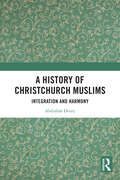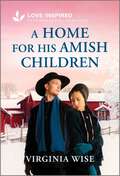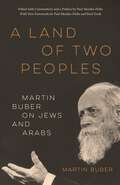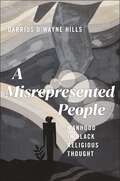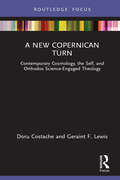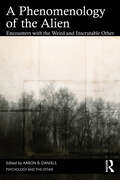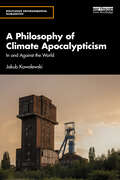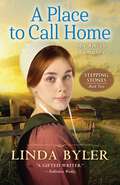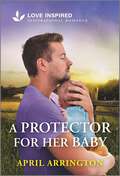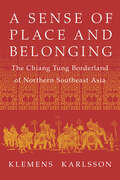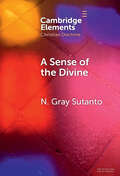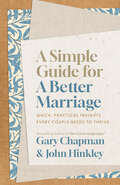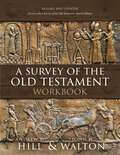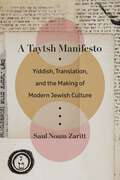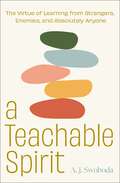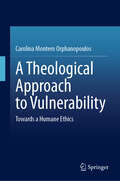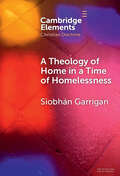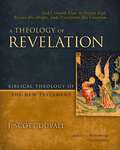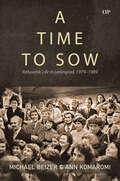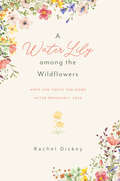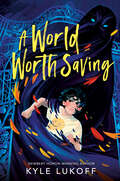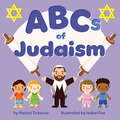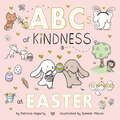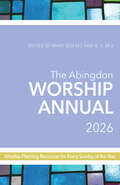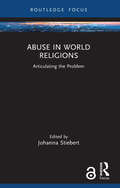- Table View
- List View
A History of Christchurch Muslims: Integration and Harmony
by Abdullah DruryThis book examines a significant part of New Zealand history through a critical analysis of the Muslim community in Christchurch, a neglected but important aspect of wider New Zealand social and religious history.Islam is one of the fastest growing religions in New Zealand and one of the least understood by the wider public. However, the historic reality demonstrates that the first Muslim settlers arrived within 15 years of the proclamation of the colony in 1841, and many have been living quietly in this country and contributing to society ever since. Drury elucidates how New Zealand Muslims have proved it possible to integrate into a European society in the South Pacific whilst retaining an idiosyncratic sense of Islamic communal identity.This book is a useful reference for scholars and educators curious to learn more about Muslims in New Zealand and about the Christchurch Mosque communities before the 2019 shootings.
A Home for His Amish Children: An Uplifting Inspirational Romance
by Virginia WiseThe wife he didn&’t expect Could be exactly what he needs With his house and business destroyed in a fire, widower Silas Hochstetler desperately needs somewhere for him and his children to live. Needing help to pay her mortgage—and secretly longing for a family of her own—spinster Mary King answers his ad for a wife. Navigating their new life together with the children isn&’t as easy as they thought, though neither can ignore the spark between them. They might be strangers, but their marriage of convenience might just lead to something real…From Love Inspired: Uplifting stories of faith, forgiveness and hope.
A Land of Two Peoples: Martin Buber on Jews and Arabs
by Martin BuberA new edition of Martin Buber’s many writings on Arab-Jewish relations in Palestine, with updated forewords by two preeminent Palestinian and Jewish scholars. The theologian and philosopher Martin Buber (1878–1965) was committed to radical socioeconomic reconstruction in pursuit of international peace. His voluminous writings on Arab-Jewish relations in Palestine interweave his religious and philosophical teachings with his politics, each essential to Buber’s vision of democratic and religious life. A Land of Two Peoples collects the letters, talks, and essays in which Buber advocated for a binationalism that reconciled Arabs and Jews as a solution to the conflict in the Middle East. As relevant today as when it was first published nearly fifty years ago, this edition of A Land of Two Peoples includes two forewords from the preeminent Jewish and Palestinian scholars Paul Mendes-Flohr and Raef Zreik.
A Misrepresented People: Manhood in Black Religious Thought (Religion and Social Transformation)
by Darrius D'wayne HillsOffers a Black male response to the challenge of womanist thoughtAlthough much Black religious scholarship has engaged with feminist theory and womanist thought, a gap remains where little work has been done in religious studies to investigate the Black male experience. A Misrepresented People explores how African American men grapple with identity and masculinity in relation to Black religious thought. This book counters the dominant portrayal of Black men in American society as suspicious, morally defective, and irredeemable, and showcases the strength and relevance of Black religious thought in developing alternative notions of Black manhood.Drawing on womanist discourses, African American religious thought, literature, and Black male studies, as well as an examination of the writings and sermons of Howard Thurman and Martin Luther King Jr., Darrius D’wayne Hills offers a vision of Black male identity that is grounded in interpersonal relationships and connection. Positioning identity formation as a religious concern, Hills expands the application of religious scholarship toward the complex social and material realities faced by Black men. In doing so, this volume offers a much-needed new model for understanding Black male gender identity, illustrating how religious thought fosters more holistic and livable futures for African American men.
A New Copernican Turn: Contemporary Cosmology, the Self, and Orthodox Science-Engaged Theology (Routledge Focus on Religion)
by Doru Costache Geraint F. LewisThis short book discusses the latest in terms of cosmology’s knowns and unknowns and sets out to ascertain the potential of Orthodox Christian theology for accommodating the current scientific view of the universe. It also addresses one of cosmology’s unknowns, the destiny of the self in the vastness of space, a topic that has caused angst since the dawn of modern science.The book examines, accordingly, the signs of a “New Copernican Turn” within contemporary culture, favouring the self and its meaningful encounters with the infinite universe, at the forefront of which being the quest for a physics that views something akin to the self as undergirding reality, not as an inconsequential byproduct of natural phenomena. The book further shows that theological, spiritual, and religious forms of nature contemplation and wonder facilitate the self’s creative intersection with the universe. It amounts to an exercise in science-engaged Orthodox theology that takes contemporary cosmology as a starting point.The intended audience of this book is scholars and researchers of science and religion, religious studies, philosophers, and theologians.
A Phenomenology of the Alien: Encounters with the Weird and Inscrutable Other (Psychology and the Other)
by Aaron B. DanielsA Phenomenology of the Alien: Encounters with the Weird and Inscrutable Other considers both literal and figurative experiences of the alien from a psychological, psychoanalytic and philosophical perspective.Throughout the book, the authors wrestle with the unexplained, ineffable, unspeakable, sublime, uncanny, abject and Miéville’s abcanny. This collection provides phenomenologies of encounters with the inscrutably alien from lights in the sky, dark corners of Weird fictional landscapes, architecture, technology, or the clinical symptom. The chapters examine fictional and nonfictional encounters with what exceeds the capacity to “make sense,” taking a new approach to the topic of alterity and inviting the reader to examine how these encounters reflect our contemporary condition culturally, individually, clinically, theologically and philosophically.Bridging cultural, psychoanalytic, literary, clinical, media, and religious studies, the novel approaches in this volume will be of interest to students and scholars alike.
A Philosophy of Climate Apocalypticism: In and Against the World (Routledge Environmental Humanities)
by Jakub KowalewskiThis book offers a long-overdue analysis of the ubiquity of eco-apocalypticism in current discourses on the climate crisis.Drawing on a wide range of sources and theoretical traditions from ecological works and radical pamphlets, through political theology and continental philosophy to ancient and medieval apocalypses, the book sheds a comprehensive light on the concepts, processes, and experiences which circulate around the figure of the environmental end of the world. Importantly, this book argues that apocalypticism can provide a productive philosophical framework for addressing the climate catastrophe, enabling us to propose a distinctive answer to the fundamental question which haunts progressive ecological projects: how can we defend the world we find indefensible?Appealing to students, academics, and researchers in philosophy, political theology, and environmental humanities, this book is a timely intervention which hopes to demonstrate that, when all else fails, it is the end of the world which may save the planet.
A Place to Call Home: An Amish Romance (Stepping Stones)
by Linda BylerFollow Mary's journey as she continues to search for a sense of belonging in this second book in the Stepping Stones series, following Who Is Mary? Running her own bakery in Lancaster, Pennsylvania keeps Mary busy and her active mind engaged. But she continues to struggle with anxiety that is sometimes crushing, and though she has Aunt Lizzie and a few good friends, she often feels lonely and out of place. She's still questioning her very conservative Amish upbringing, too, and feeling torn between fear of an angry, exacting God and the hope of a loving, forgiving one. At a hymn singing, Mary meets Steve, a young man who intrigues her, but their fledgling relationship is interrupted when she learns that her father has been in an accident and she must return home to rural New York to care for him. Tending to her very strict father stretches Mary nearly to breaking point. Will they ever be able to really love and respect each other? And how can Mary even begin to know God's will for her life when she's not even sure she knows who God is? Author Linda Byler is an active member of the Amish church and writes all her novels by hand with a pen and notebook. She offers a unique and fascinating look into Amish history and culture.
A Protector for Her Baby: An Uplifting Inspirational Romance
by April ArringtonFor one little boy, he&’ll change his whole life… From the moment Mallory Kent arrives at his farm, pregnant and seeking shelter, Liam Williams vows to help her. Mallory&’s fleeing an abusive ex-husband and needs to start over. Caring for Liam&’s elderly mother, who has dementia, gives Mallory stability—for now. Soon Liam can&’t picture life without Mallory or little Oliver. But Mallory struggles to trust any man, especially now she has a son to keep safe. Can Liam show her the family they&’re building is worth risking her heart?From Love Inspired: Uplifting stories of faith, forgiveness and hope.
A Sense of Place and Belonging: The Chiang Tung Borderland of Northern Southeast Asia (NIU Southeast Asian Series)
by Klemens KarlssonA Sense of Place and Belonging examines a marginalized society, Chiang Tung (Keng Tung) in the Eastern Shan State of Myanmar, between the dominant cultures of the Burmese, Chinese, and Siamese/Thai. Chiang Tung sits at the historic borderland known as the Golden Triangle, an area marked by drug trade, human trafficking, and civil war. Hiding a glorious literary and visual cultural tradition from the fourteenth century, Chiang Tung is remarkable for how well it has maintained its Buddhist culture in the turbulent history of war and forced resettlement that formed northern Southeast Asia. Klemens Karlsson examines the connection between the Buddhist traditions, the ancient cult of territory spirits—a cult of the earth, place, and village that forms a kind of religious map—and the monsoon culture of wet rice irrigation. Tying together myths and memories told by local people and written in local chronicles with the unique performance of the Songkran festival, which dramatizes a symbolic agreement between Tai Khuen people and the indigenous Lua/Lawa people, A Sense of Place and Belonging presents a historical, political, religious, and cultural context connecting the present with the past, the local with the global, and tradition with change and transformation.
A Sense of the Divine: An Affective Model of General Revelation from the Reformed Tradition (Elements in Christian Doctrine)
by N. Gray SutantoHow should one make sense of the Christian confession that God has instilled a 'sense of divinity' in every person? While other approaches have identified the sense with a perceptual or cognitive faculty or with the empirical reports of theistic belief, this Element advances an affective model of general revelation, which draws from the writings of the neo-Calvinist branch of the Reformed tradition. The author argues that the sense of divinity refers to an implanted 'feeling of divinity', a sensus numinis, and that this model makes better sense of the Christian witness, theologically re-orients the empirical findings from the cognitive science of religion, and eludes influential objections against the doctrine of general revelation.
A Simple Guide for a Better Marriage: Quick, Practical Insights Every Couple Needs to Thrive
by Gary Chapman John Hinkley#1 New York Times bestselling author Gary Chapman brings us A Simple Guide for a Better MarriageMarriage is beautiful. It&’s meant to be a picture of Jesus and his love for the church. But it&’s tough to live up to that. Every relationship comes with challenges. Whether you&’re in your first or 51st year, you can grow in your marriage.Dr. Gary Chapman shares stories and insights inspired by decades of counseling couples. With grace and humor, Gary shares time-tested wisdom and practical advice on:Love and IntimacyCommunicationChanges and DecisionsApologies and ForgivenessAnger and Conflict ManagementAttitudes, Differences, & ExpectationsMoney, Responsibilities, & In-LawsA Simple Guide for a Better Marriage is for all couples who desire a joy-filled marriage marked by understanding, humor, and love. This book also makes the perfect gift!
A Survey of the Old Testament Workbook: Revised and Updated
by John H. Walton Andrew E. HillThis workbook accompanies A Survey of the Old Testament, Fourth Edition by Andrew E. Hill and John H. Walton. It follows the textbook's structure and offers readings, activities, and exercises designed to support the students' learning experience as they explore the literary, historical, and theological issues behind each book of the Old Testament.A Survey of the Old Testament Workbook offers students an additional contact point with the content and concepts from the main textbook and will help them better understand the Old Testament, its background, purpose, message, structure, and major themes. This workbook is an indispensable study resource for students and independent learners alike who want to deepen their understanding of the Old Testament and the God it reveals.
A Taytsh Manifesto: Yiddish, Translation, and the Making of Modern Jewish Culture
by Saul Noam ZarittA Taytsh Manifesto calls for a translational paradigm for Yiddish studies and for the study of modern Jewish culture. Saul Noam Zaritt calls for a shift in vocabulary, from Yiddish to taytsh, in order to promote reading strategies that account for the ways texts named as Jewish move between languages and cultures. Yiddish, a moniker that became dominant only in the early twentieth century, means “Jewish” and thus marks the language with a single identity: of and for a Jewish collective. In contrast, this book calls attention to an earlier and, at one time, more common name for the language: taytsh, which initially means “German.” By using the term taytsh, speakers indicated that they were indeed speaking a Germanic language, a language that was not entirely their own. In time, when the word shifted to a verb, taytshn, it came to mean the act of translation. To write or speak in Yiddish is thus to render into taytsh and inhabit the gap between languages.A Taytsh Manifesto highlights the cultural porousness that inheres in taytsh and deploys the term as a paradigm that can be applied to a host of modern Jewish cultural formations. The book reads three corpora in modern Yiddish culture through the lens of translation: Yiddish pulp fiction, also known as shund (trash); the genre of the Yiddish monologue as authored by Sholem Aleichem and other prominent Yiddish writers; and the persistence of Yiddish as a language of vulgarity in contemporary U.S. culture. Together these examples help revise current histories of Yiddish while demonstrating the need for new vocabularies to account for the multidirectionality of Jewish culture. A Taytsh Manifesto develops a model for identifying, in Yiddish and beyond, how cultures intertwine, how they become implicated in world systems and empire, and how they might escape such limiting and oppressive structures.
A Teachable Spirit: The Virtue of Learning from Strangers, Enemies, and Absolutely Anyone
by A. J. SwobodaBeing a know-it-all isn't a fruit of the Spirit. But the ancient call of Jesus beckons us to "love the Lord your God with all your heart, mind, soul, and strength" (Matt. 22:37). How do we love God with our mind? In A Teachable Spirit, A.J. Swoboda helps followers of Jesus develop the discipline of teachability.In a world marked by distraction, mind-numbing entertainment, endless content, polarization, and a decreasing desire to humbly learn from those we dislike, the way we engage sources of information like news media, science, and social media content could not be more important. Thankfully, the Christian faith provides sharp tools and rich traditions for learning how to be the best learners. By drawing on his experiences as a professor, theologian, and lay pastor, Swoboda explores the potency of seeing learning as a part of one's spiritual formation to Jesus.With the right posture, Christians can learn from even the most unexpected places.
A Theological Approach to Vulnerability: Towards a Humane Ethics
by Carolina Montero OrphanopoulosThis book explores the symbols of vulnerability, narratives of vulnerability, and ethical norms of vulnerability in the Bible. Focusing on the great Tradition of the Church—from Stoic and Neoplatonic influence to the Moral Systems—and the approach to the Second Vatican Council, the volume helps to comprehend, deepen and clarify the concept of vulnerability. As a theory, it addresses the construction of ethics of vulnerability, its characteristics, the fundamental categories it should include. Reinforced by “An Interdisciplinary Approach to Vulnerability: Towards a Humane Ethics (Vol I)”, written by the same author, this book hopes to lead the discourse of Christian ethics towards a better understanding and ultimately build towards a greater integration of the vulnerability of the human being.
A Theology of Home in a Time of Homelessness (Elements in Christian Doctrine)
by Siobhán GarriganHomelessness abounds today in various forms of displacement and as a pervasive condition of unbelonging. It ruins health, lives, communities, habitats, creativity, and hope. This Element argues that for theology to play its part in ending homelessness, it must better understand its own concept of 'home'. The Element proposes a vision of home capable of resisting the tacit, mistaken theology of home that undergirds the various iterations of modern homelessness. Weaving biblical and ritual sources, the argument constructs theological responses to the twin forces of consumerism and nationalism which, alloyed with sexism and racism, constitute the time of homelessness in which we live. It asks the reader to imagine home as 'participating instead of possessing' in every sphere of life, in pursuit of a theology of home capable of preventing homelessness and not merely ministering to people experiencing it. This title is also available as Open Access on Cambridge Core.
A Theology of Revelation: God's Grand Plan to Defeat Evil, Rescue His People, and Transform His Creation (Biblical Theology of the New Testament Series)
by J. Scott DuvallA Theology of Revelation by J. Scott Duvall in Zondervan's Biblical Theology of the New Testament series provides a comprehensive look at the theology of John's Apocalypse. One of only a few dedicated theologies of Revelation, Duvall's book leaves no stone unturned in the study of the final book of the Christian canon of Scripture. This thoroughly researched study includes:an investigation into the historical framework of the book: authorship, date, and occasion and purpose;a survey of literary-theological foundations: genre, text and canonicity, grammar and symbolic language, use of the Old Testament, literary structure, and interpretation; anda full literary-theological reading of the book, culminating in an exploration of the book's most significant theological themes: God, Jesus Christ, the Holy Spirit, the people of God, worship, discipleship, salvation, God's judgment of evil, and the new creation.Readers will find here a study that is clearly written, attentive to the historical-literary context, with special attention given to the primary theological themes in the book. Perhaps above all, readers will have their hope in God and his amazing plan reinforced and strengthened.
A Time to Sow: Refusenik Life in Leningrad, 1979–1989
by Ann Komaromi Michael BeizerA Time to Sow offers a glimpse into the unofficial Jewish life in 1980s Leningrad, shaped by numerous long-term refusals from authorities to grant exit visas to Jews seeking to migrate to Israel. The book reveals how the lives of the “refuseniks” were marked by a continuous struggle for the right to emigrate, as well as by the formation of an informal community. It traces how the community provided mutual assistance in times of distress, particularly offering support to imprisoned activists and their families. The community also maintained contacts with co-religionist supporters visiting from abroad, engaged in Hebrew teaching, facilitated religious revival, celebrated Jewish holidays as a group, disseminated samizdat publications, conducted popular lectures on Jewish history and culture, and pursued Jewish studies. The book divulges how all these activities took place in private, despite the ban and persecution by the authorities. Drawing from analyses of historical sources, rare archival materials, as well as personal experiences including interviews with activists, the book provides a rich and nuanced understanding of this unique period. Ultimately, A Time to Sow presents a critical, non-apologetic perspective to uncover a distinctive, little-known chapter of Russian Jewish history in Leningrad, one of Russia’s most important cities.
A Water Lily among the Wildflowers: Hope and Truth for Moms after Pregnancy Loss
by Rachel DickeyThe loss of your baby is life-changing, but because of Hope, your shattered heart can heal. When a mother loses a baby, a depth of grief emerges unlike anything else. Confusion, frustration, and heartbreak overwhelm her mind. A questioning and wrestling with God unfolds, and she must learn how to navigate her life that is now forever changed. This was the story of Rachel Dickey, a registered nurse who tragically lost her son at eighteen weeks gestation. Having faced this overwhelming grief, she speaks directly to readers about her firsthand experiences and encourages moms to look to the truth of Scripture as they navigate their loss. Looking for answers, Rachel began an in-depth study of what the Bible says regarding the life of the unborn, answering critical questions like, "When does life begin?", "Did God love my unborn baby?", and "Is my baby in heaven?". A Water Lily among the Wildflowers teaches what the Bible says about these questions and many of the other questions grieving mothers have regarding this loss. Rachel notes how men and women grieve differently and offers tools to keep a marriage and relationship strong. She also addresses the wounding impact that other people have, taking a look at some of the hurtful statements many hear grieving the loss of their babies. Those suffering the heartbreaking trauma of losing a baby need support and friendship. Rachel offers that to the millions of mothers who have said goodbye to their babies too soon.
A World Worth Saving
by Kyle LukoffA groundbreaking, action-packed, and ultimately uplifting adventure that intertwines elements of Jewish mythology with an unflinching examination of the impacts of transphobia, from Newbery Honor winner Kyle Lukoff&“Rare and beautiful—a novel that combines wondrous fantasy, searing real-world relevance, and a frank empathetic understanding of the adolescent experience...The way Lukoff combines these elements in a page-turning adventure is nothing short of magic!&” —Rick Riordan, author of Percy Jackson and the OlympiansCovid lockdown is over, but A&’s world feels smaller than ever. Coming out as trans didn&’t exactly go well, and most days, he barely leaves his bedroom, let alone the house. But the low point of A&’s life isn&’t online school, missing his bar mitzvah, or the fact that his parents monitor his phone like hawks—it&’s the weekly Save Our Sons and Daughters meetings his parents all but drag him to. At SOSAD, A and his friends Sal and Yarrow sit by while their parents deadname them and wring their hands over a nonexistent &“transgender craze.&” After all, sitting in suffocating silence has to be better than getting sent away for &“advanced treatment,&” never to be heard from again. When Yarrow vanishes after a particularly confrontational meeting, A discovers that SOSAD doesn&’t just feel soul-sucking…it&’s run by an actual demon who feeds off the pain and misery of kids like him. And it&’s not just SOSAD—the entire world is beset by demons dining on what seems like an endless buffet of pain and bigotry.But how is one trans kid who hasn&’t even chosen a name supposed to save his friend, let alone the world? And is a world that seems hellbent on rejecting him even worth saving at all?
ABCs of Judaism
by Rachel TichauerDiscover Judaism from A to Z with this fun and informative alphabet board book—the perfect baby step in a little one&’s journey of faith!A is for afikomen…B is for bar and bat mitzvah…C is for challah…Featuring key customs, traditions, holidays, and more, this board book offers a great A to Z introduction to Jewish culture and religion.Charming, kid-friendly art pairs perfectly with simple, accessible text in this board book for the youngest readers.
ABCs of Kindness at Easter (Books of Kindness)
by Patricia HegartyGive the gift of kindness this Easter with this sweet ABC's book, in which every letter is a lesson in being kind. Join a parade of chicks, lambs, and other cute animals as they discover how to spread joy and generosity during this special time of year.A is for affection as Eastertime nears.B is for bunnies with big, floppy ears.C is for chicks, hatching in a row.D is for daffodils, wherever you go!Little ones can learn their ABCs with the bestselling Books of Kindness series. This rhyming book is a wonderful gift for those celebrating Easter!Joyful springtime scenes showcase moments of friendship and generosity, making this a great tool for fostering kindness in the youngest readers. And the series' adorable cast of animal characters is back with special guests: chicks and lambs! For other Books of Kindness, look for: ABCs of Love123s of ThankfulnessABCs of Kindness at Christmas
Abingdon Worship Annual 2026
by Mary Scifres B.J. BeuThe go-to worship planning resource for all who plan weekly worship.The Abingdon Worship Annual 2026 is a practical, lectionary-based resource for leaders responsible for planning worship. This thoughtful sourcebook offers a weekly theme with meaningful prayers and fresh litanies following a traditional order of Christian worship: Invitation and Gathering Proclamation and Response Thanksgiving and Communion Sending Forth Liturgies and prayers are also included for special days, including New Year’s Day, Ascension Day, All Saints Day, Thanksgiving Day, and Christmas Eve.The Annual includes helpful reminders for Christian-year planning—including liturgical colors—and a scripture index. The authors also provide in-depth guidance and practical ideas for this new age of worship, helping readers understand and weigh their options for worshiping in digital spaces and unconventional places.The Abingdon Worship Annual 2026 is a must-have sourcebook offering countless opportunities for planning meaningful and insightful worship.
Abuse in World Religions: Articulating the Problem (Rape Culture, Religion and the Bible)
by Johanna StiebertThis book opens out religious studies discussion on spiritual abuse to extend beyond the primary focus on Christian settings and situations. Emphasising the diversity and reach of manifestations of spiritual abuse, it offers snapshots and examples from five major religious traditions.Following a definition of “spiritual abuse” and a qualification of the application of the designation “world religions”, five chapters - each by subject experts - demonstrate that spiritual abuse can be identified in contexts of Hinduism, Judaism, Christianity, Islam, and Sikhi(sm). The chapters draw on sacred texts, historical events, religious institutions, practices, or figures particular to each tradition, paying heed to how specific examples can relate to wider, or systemic tendencies. Throughout, there is emphasis on trauma-informed and survivor-centred approaches.Abuse in World Religions (Vol. 1) will appeal to academics of religious studies with interest in rape culture and spiritual abuse, as well as upper-level undergraduates and postgraduates, and religious leaders, or leaders of faith-based organisations, seeking to understand and to confront spiritual abuse and rape culture in their own communities.The Open Access version of this book, available at http://www.taylorfrancis.com, has been made available under a Creative Commons Attribution-Non Commercial-No Derivatives (CC BY-NC-ND) 4.0 license
